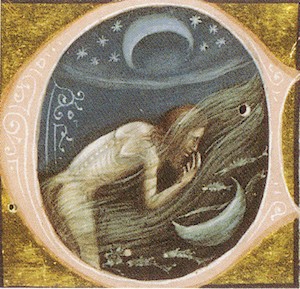 Qu’est-ce qu’avoir un corps ?
Qu’est-ce qu’avoir un corps ?
Qu’est-ce que faire l’expérience du changement et de la transformation de ce corps ?
L’accent mis sur le corps matériel dans la théorie critique et dans la philosophie a, au cours des dernières décennies, produit des défis stimulants et variés à propos de la façon dont nous concevons les corps, en particulier dans les domaines du genre et de la sexualité, la théorie Queer, le posthumanisme, les études sur le handicap , et le «tournant matériel». Les discussions sur la façon dont les organismes interagissent, sont situés dans ou sont délimités par le social, le politique et les phénomènes culturels éclairent notre compréhension du corps. Au Moyen Age, on trouve des débats similaires, des discussions, et des inquiétudes exprimées.
Cette journée d’étude interdisciplinaire porte sur la transformation du corps et ce qu’elle signifie pour la conception des corps humains, non humains, animaux, matériels, et divins. Comment la représentation de ces changements dans les différents arts reflète-t-elle et infléchit-elle les limites classiquement associées au corps ? Les rencontres sont ouvertes aux chercheurs travaillant dans le domaine des études médiévales, y compris la littérature, l’histoire de l’art, l’histoire de la médecine, et l’histoire de la religion.
Les propositions théoriques ou portant de manière critique sur les frontières disciplinaires sont les bienvenues, ainsi que celles qui adoptent une démarche plus historique. La journée d’étude offrira un forum d’échanges pour les chercheurs travaillant sur la transformation corporelle médiévale sous toutes ses formes.
Les sujets peuvent comprendre :
• La transformation à travers les espèces et les limites matérielles (par exemple la lycanthropie médiévale, les Métamorphoses ovidiennes)
• La matière comme lieu de changement (par exemple, les interprétations d’Aristote)
• Les organismes spirituels (par exemple la transformation divine, l’Eucharistie, les reliques)
• La mort, la pourriture, et le processus de vieillissement
• Les corps vulnérables – les plaies, les saignements, la maladie
• Les transformations corporelles miraculeuses
• Les métamorphoses dans la littérature et dans l’art
• La transposition des corps et des identités dans le texte et l’image
• La transformation du sens par l’allégorie et le symbolisme
Merci d’envoyer vos propositions de 250 mots à warwickbodiesinflux@gmail.com avant le 15 décembre 2016
Organisateurs : Liam Lewis et Jane Sinnett-Smith
***
Saturday 20th May 2017
Keynote Speakers:
Dr Miranda Griffin (St Catharine’s College, Cambridge), Dr Robert Mills (UCL), Dr Debra Strickland (University of Glasgow)
What is it to have a body? And to experience change and transformation through that body?
A focus on the material body in critical theory and philosophy has, in recent decades, produced varied and stimulating challenges to the ways that we think about and engage with bodies, particularly in the fields of gender and sexuality, queer theory, posthumanism, disability studies, and the ‘material turn’. Discussion of how bodies interact with, are situated in, or are delineated from social, political, and cultural phenomena illuminates our understanding of the experience of embodiment, and the representation of this experience. Similar debates, discussions, and anxieties were expressed in the Middle Ages.
This interdisciplinary conference asks what the transformation of the body means for the conception of bodies of different kinds: human, nonhuman, animal, material, divine, and how the representation of these changes in different media reflects on and inflects the boundaries conventionally associated with the body. We welcome abstracts from scholars working in any area of medieval studies, including literature, art history, history of medicine, and history of religion; we encourage proposals that engage with critical theory or
challenge disciplinary boundaries, as well as those approaching the topic in more historical ways.
Topics might include, but are not limited to:
metamorphosis – boundaries between species – boundaries between materials – volatile matter – changing forms – spiritual bodies – transubstantiation – transforming saints – vulnerable bodies – death, illness, injury – medical transformations – bodily miracles – translating bodies – bodies in text and image – allegory and symbolism – transforming meaning
Please submit abstracts of 250 words to warwickbodiesinflux@gmail.com by 15th December 2016
Organisers: Liam Lewis and Jane Sinnett-Smith
Email: warwickbodiesinflux@gmail.com

Leave a Reply
You must be logged in to post a comment.